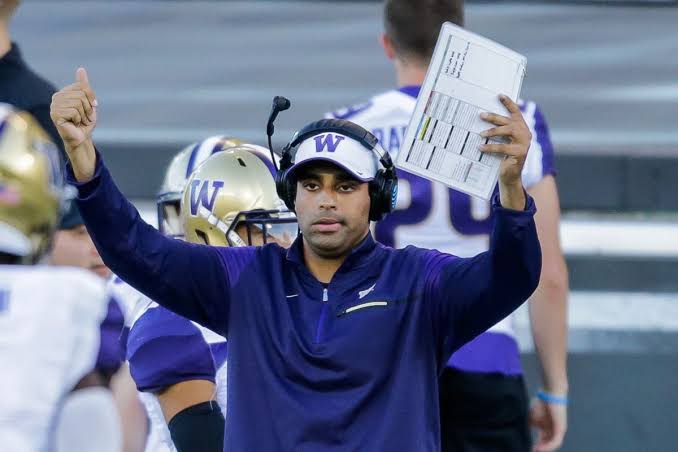Stoning news: Michael Schumacher retired from FORMULA 1 racing due to Concerning Illness…

Michael Schumacher, one of the most successful and iconic figures in the history of Formula 1 racing, made the difficult decision to retire from the sport due to a serious illness. Schumacher’s decision to leave Formula 1 came as a shock to his fans, the racing community, and the world at large. The announcement marked the end of a career that had captivated millions and left an indelible mark on motorsport.
Schumacher’s illness, which has been kept largely private, prompted the legendary driver to step away from the sport in order to focus on his health and well-being. For many years, Schumacher had been a dominant force in Formula 1, winning seven World Championships and breaking numerous records along the way. His remarkable skill, relentless drive, and unwavering determination were the hallmarks of his career. Schumacher’s presence in the sport was synonymous with success, and his departure left a void that seemed impossible to fill.
The circumstances surrounding his illness remain a topic of speculation and concern. In December 2013, Schumacher suffered a severe head injury while skiing in the French Alps. The accident left him in a coma for several months, and although he has made some progress in his recovery, his condition has remained private. His family and close friends have been cautious in sharing information about his health, leading to widespread uncertainty regarding his current state. Despite the ongoing mystery, it is clear that Schumacher’s decision to retire from Formula 1 was influenced by the gravity of his situation.
Schumacher’s impact on Formula 1 was nothing short of extraordinary. He made his debut in the sport in 1991 with the Jordan team, but it wasn’t long before he caught the eye of major teams, eventually securing a seat with Benetton. It was with Benetton that Schumacher first tasted success, winning two World Championships in 1994 and 1995. However, it was his move to Ferrari in 1996 that truly cemented his status as one of the greatest drivers in the history of the sport.
During his time with Ferrari, Schumacher transformed the team into a dominant force in Formula 1, leading them to five consecutive World Championships from 2000 to 2004. His work ethic, meticulous attention to detail, and ability to extract the maximum performance from both the car and himself set him apart from his peers. Schumacher’s partnership with technical director Ross Brawn, chief designer Rory Byrne, and his relationship with key Ferrari personnel was instrumental in the team’s unprecedented success.
Schumacher’s rivalry with other top drivers, such as Mika Häkkinen, Juan Pablo Montoya, and Fernando Alonso, added an extra layer of drama and excitement to his career. His on-track battles were legendary, and his ability to stay calm under pressure often proved to be a decisive factor in securing victories. Schumacher was known for his ruthlessness when it came to securing a win, but he also possessed an undeniable sportsmanship that earned him the respect of his competitors.
His decision to retire from Formula 1 in 2006 after his second stint with Ferrari came as a surprise to many. Fans and pundits alike speculated on whether Schumacher would return to racing, and in 2010, after a four-year hiatus, he made his much-anticipated comeback with the Mercedes team. Although he was no longer the dominant force he had once been, his return marked the continuation of a legacy that would inspire future generations of drivers.
Schumacher’s legacy is not only defined by his statistical achievements but also by his influence on the sport. His work ethic and dedication to perfection raised the bar for drivers and teams alike, and his commitment to pushing the limits of performance forever changed the way Formula 1 operates. Schumacher’s impact on the sport is still felt today, as many of the drivers who followed in his footsteps cite him as a major source of inspiration.
Throughout his career, Schumacher was known for his intense focus, strategic thinking, and exceptional driving ability. He became a symbol of Formula 1’s evolution, not just through his victories but also through the way he approached the sport. His meticulous preparation and tireless work ethic served as a blueprint for future drivers, and his pursuit of excellence became an integral part of Formula 1’s culture.
When Schumacher retired from racing, his fans around the world were heartbroken, but many hoped that he would be able to enjoy a quiet and fulfilling life after his long and illustrious career. His illness, however, brought a tragic and unexpected turn to his story. Despite the challenges he faced, Schumacher’s resilience and determination in the face of adversity have left a lasting impression on his supporters.
In the years following his retirement, Schumacher’s family, particularly his wife, Corinna, has been steadfast in their commitment to his recovery. They have remained largely private about his condition but have expressed gratitude for the support from fans and the racing community. The respect and admiration that Schumacher earned during his career continue to be felt, as many in the sport still consider him a benchmark of excellence.
Although Michael Schumacher’s retirement from Formula 1 was prompted by his illness, his legacy in the sport remains undeniable. He is remembered not only as one of the greatest drivers of all time but also as a symbol of perseverance, dedication, and the relentless pursuit of greatness. His contribution to Formula 1 has left an indelible mark on the sport, and his name will forever be associated with the pinnacle of motorsport.








